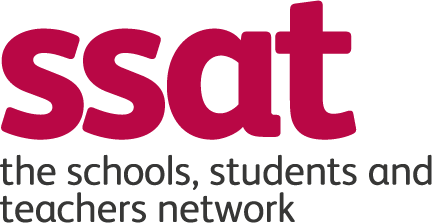Enhancing Teaching Programme
What is ETP?
Enhancing Teaching Programme (ETP) will provide your teachers with a deeper understanding of teaching and learning, developing consistently outstanding practitioners for your school. All modules are built on SSAT’s Teacher Effectiveness Enhancement Programme (TEEP) and centred on the core themes of collaboration, growth mindsets and the importance of changing habits in both teachers and learners.
What is the process?
The programme consists of 6 modules, each focusing on a different essential element of classroom practice. Each module is two hours long and the programme is supported with pre-work and follow up activities to ensure learning is transferred into daily actions
What are the six modules?
 Developing independent learners
Developing independent learners
This module starts with a definition of learning and what we mean by effective learner behaviours; thinking about the learning process and identifying how we can encourage learners to develop metacognition. Delving into the evidence behind learning processes such as fixed and growth mindsets, habits of mind and SOLO taxonomy, this module develops understanding and practice to enable teachers to implement these aspects of pedagogy with their learners.
 Stimulating curiosity in learners
Stimulating curiosity in learners
What is curiosity? What does it look like and sound like in your classroom? What can Ofsted reports on schools who are developing curious learners tell us about how we can stimulate curiosity in our own students? Experiencing, devising and refining hinge questions are just one of the strategies explored in this module, alongside other aspects of pedagogy to support children questioning the world around them.
 The learning process
The learning process
Learning processes and the examination of useful tools for reflective practice are fundamental aspects of this module. Utilising existing research and evidence-informed practice such as the Kolb Cycle, this module will extend understanding of effective feedback; including how we feedback to colleagues following observation of their practice and how we use effective coaching communication to develop an ethos of developmental scrutiny and support.
 Effective classroom climate
Effective classroom climate
Built on the principles of accelerated learning, this module examines what we mean when describing an ‘inviting and supportive classroom’ and how we can ensure that the classroom is one where learners feel challenged not threatened. Considering the Borich models and the implications for the classroom, this module describes how high expectations and high aspirations extend to both teacher and learner.
 Formative assessment: formative feedback
Formative assessment: formative feedback
Purposeful feedback has been proven to have significant impact on learner progress. Drawing on the huge amount of research on formative assessment and learning from our Embedding Formative Assessment resource, this module defines the core principles of formative assessment, be that self, peer or teacher led. Feedback procedures between teacher/learner and learner/learner are examined and refined for your context.
 Planning for differentiation
Planning for differentiation
Differentiation is often what keeps teachers awake at night, with visions of multiple individual plans for learners. Challenging many misconceptions, this module demonstrates that differentiation, in particular for vulnerable cohorts and the more able, is achievable and will drive progress for all learners. A wide range of practical tools are explored, giving the teacher an array of strategies to tailor to your learners.
Meet our Qualified Trainers
Alex Pulfer
Anthony Lees




